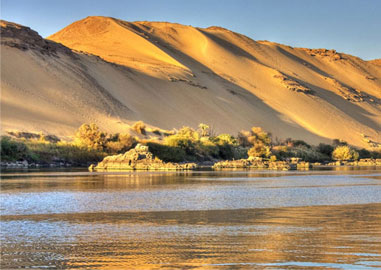
Mesopotamia - Amazing Facts about the Cradle of Civilization
Posted By IsacMesopotamia is widely considered to be the longest and oldest human civilization, where the earliest cities in world history appeared about 3500 BC. It refers to the Tigris-Euphrates river system and corresponds to the modern day Iraq, Kuwait and some parts of Syria, Turkey and Iran. For West, the Bronze Age Mesopotamia is the real cradle of civilization which consisted of four empires, all native to the territory of modern day Iraq. In the first half of the 200 AD, the region was captured by the Sassanid Persians and remained under their control till the 7th century when the Sassanid Empire was conquered by the Arab Muslims. Given below is a brief list of Mesopotamia facts, most probably new to you, that besides adding to your knowledge of world history will also serve as a source of entertainment:
- Do you really know that Mesopotamians did not believe in after-life and were of the view that all the evil as well as virtuous people went underground in the form of ghosts and ate dirt?
- Literally, the word "Mesopotamia" means "land between the rivers", and when people talk of it, they are referring to the region between and around the Euphrates and Tigris Rivers in the Middle East.
- Are you aware of the fact that these were Mesopotamians who invented the sailboat, irrigation system, plow and wheel!
- Individual city-states, controlled by different rulers, were eventually attacked by each other and ended up under a single ruler. It was retaliated and people went back to the city-states, and the whole process was repeated several times.
- Having grown up in the mountainous regions, the wife of a Mesopotamian king become homesick, so the king ordered the construction of Hanging Gardens for her.
- Besides the four main gods of Earth, Air, Water and Heavens, there were about 3,000 lesser gods and each represented an everyday item, such as pickaxe. If someone was mining and pickaxe slipped and fell on their foot, it was an indication that the god of the pickaxe hated that person!
- Initially the settlers, in Mesopotamia, gathered in small villages and towns and, after the discovery of irrigation system and art to grow crops, the towns grew bigger, eventually assuming the shape of large cities.
- The invention of government and writing helped in the maintenance of order in the cities, and the first ever human civilization was formed on earth.
- These were the Sumerians who invented writing and government and formed the first human civilization, thus paving the way for future generation of humans.
- Coming next to Sumerians, the Akkadians merged the city states of the Sumer to form the first united empire under one ruler.
- The Sumerian language was replaced by that of the Akkadians, and the latter remained the main language throughout the much of the history of Mesopotamia.
- Though the city of Babylon became the most powerful in Mesopotamia, it went through many rises and falls throughout the history of the region.
- Babylonians were the first to right down and record their system of law, and at times they created vast empires, thus ruling much of the Middle East.
- Coming out of the northern part of Mesopotamia, the Assyrians belonged to a warrior society who ruled the much of the Middle East at different times over the history of the region.
- The much of what we know about this ancient human civilization has been learned from the clay tablets found in Assyrian cites.
- These were the Persians who put an end to the rule of the Assyrians and Babylonians and conquered much of the Middle East including Mesopotamia.
- The Code of Hammurabi was the Babylonian law, created by King Hammurabi, which is considered to be the oldest written law in the world.
- A temple to the city's god, called ziggurat, was built at the center of each major city and each city has its own god.
- The length of the Tigris and Euphrates Rivers, which define the Mesopotamian region, is 1,850 kilometer and 2,800 kilometer, respectively.
- It is often called the place where history began because the people here invented and practiced writing.
- Mesopotamia is merely a part of the larger area which is called the Fertile Crescent by the archeologists.
- Very little of the ancient cities of this region lasts till this day because the walls, buildings and structures were built with sun-dried bricks which did not last long.
World Information - Latest Articles

Most Natural Beautiful Country in the World
Written By IsaacQuantifying the beauty of a country for the sake of ranking is a tough task. It requires deep...

Facts About the Most Technologically Advanced Cities in the World
Posted By IsaacToday economic strength and advances in technology go hand in hand in determining...

Largest River in The World
Posted By IsacThousands of rivers flow through different parts of the earth and enrich it with precious...
